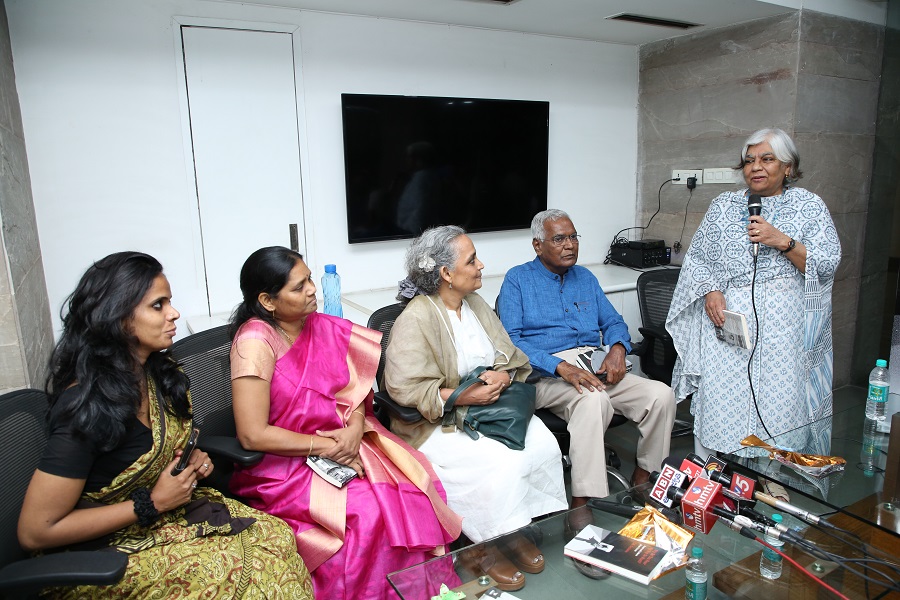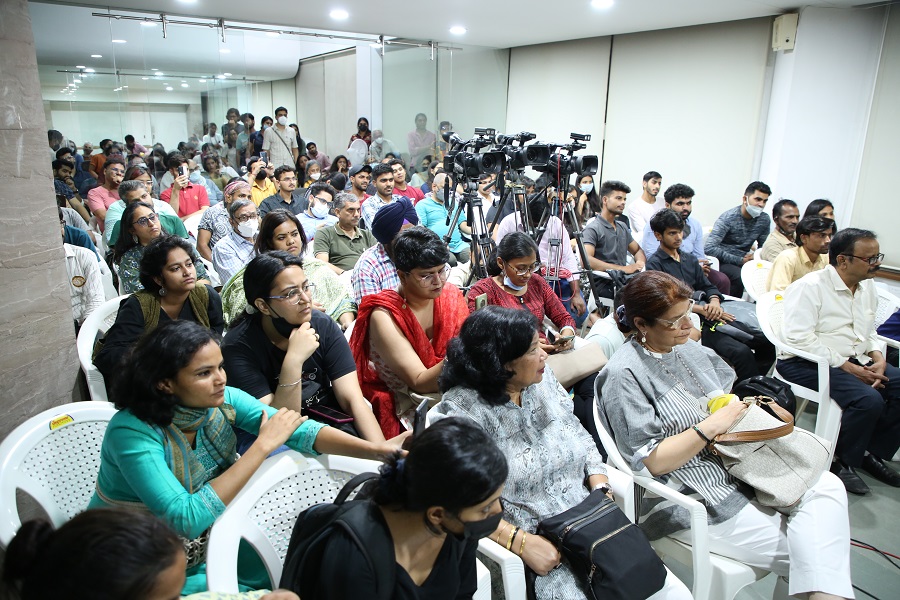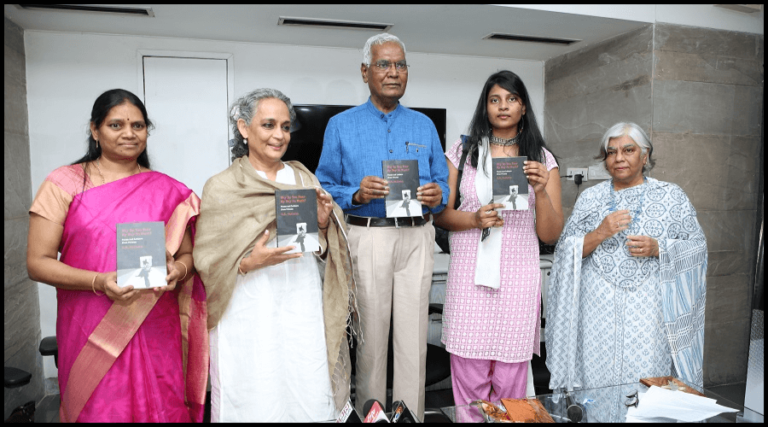Book launch: G.N. Saibaba’s ‘Why Do You Fear My Way So Much?’
Over six years since his arrest under the Unlawful Activities (Prevention) Act (UAPA), and five years since his appeal against the detention, G.N. Saibaba continues to languish in Nagpur Central Jail. His situation is made worse by his seriously deteriorating health condition. He could not be present at the launch of his book, but sent a message to be read out at the event.

G.N. Saibaba’s Why Do You Fear My Way So Much?: Poems and Letters from Prison was launched on 4 May 2022 at Jawahar Bhawan, New Delhi, by D. Raja, General Secretary, Communist Party of India. Arundhati Roy and Meena Kandasamy also spoke on the occasion. G.N. Saibaba’s wife, Vasantha Kumari, and daughter Manjeera were present at the launch, which saw a huge gathering of over 100 people.

The following message from the jailed human rights activist G.N. Saibaba was read out on that afternoon by Renuka Chatterjee, Vice President of Speaking Tiger Books:
4th May 2022
Dear Vasantha and all my dearest friends,
Five long torturous years have passed wearily, vilely and heavily, and another five weeks since the so-called judgement. A full two years of the five were weighed further down by the shadow of the coronavirus pandemic. But more than the darkness of my prison cell and the macabre dance of death caused by the bug, it was the virus of tyranny and its tentacles of hatred that impacted us.
If we include the seventeen months of my incarceration prior to the day of the judgement, altogether six and a half years of my life have vanished under the looming cover of the anda cell’s thick darkness. But how does my situation differ from that of the rest of you? In the prevailing circumstances, the difference between the inside and the outside of these high walls has become non-existent.
How, then, can I complain it’s only us prisoners that have no freedom?
Vasantha, I have received your first ever letter in Telugu after my incarceration. Your letter was like a series of images that quickly moved back and forth, collapsing the long years of cruelties, attacks and atrocities we all witnessed and experienced these past eight years. It is as if what is being faced by one family is exactly what people at large are facing throughout the sub-continent, or vice versa. Your sixteen-page letter rolled out each and every atrocity inflicted on our lives in front of my eyes; you feel it is unfair, unjust, and we have indeed lost so much through this arduous experience. But four walls don’t make a prison. Visible and invisible prisons control every aspect of our lives. This lesson has become deeply engraved through personal experience, seeing the world outside through the barred lens of my own prison cell though my view is always distorted and limited.
I am once again reminded of the words of Father Stan Swamy from a few days before he was no more:
We will still sing in chorus
A caged bird can still sing
The newspaper reported that one of the objections to Father Stan’s bail by the prosecution was that he had taken up the campaign for the release of Dr G.N. Saibaba and thousands of other Adivasis languishing in jail cells in Jharkhand and elsewhere. This is the state of affairs of human and democratic rights in our country today. But Father Stan continues to inspire us.
Five years ago, a journalist asked me a question: How do you spend time in the solitary anda cell? I did not know what to say. But it’s true that it is difficult to maintain sanity after years in a solitary cell. Sometimes I test myself to find out if I am still the same person. I read a poem and see if I can understand it. Every day, I solve a Sudoku puzzle to ensure my mind remains lucid.
I read the books you send me. But as I fight the darkness that surrounds me—the brutalities, the thick sheets of silence, the pain, the disease and the squalor, I realize that fighting the squalor of the sanitization afoot throughout the country isn’t an easy task.
Masks, masks and masks everywhere to hide human feelings—our laughing, weeping or anger of resistance. Masks are even used to silence voices. They’re mandatory in the prison barracks as well, where there is no space to sit or lie down without tripping over the limbs of someone else.
Tyranny is masked as freedom
Hatred is masked as compassion
Namaskaras replaced handshakes
Lynch mobs rendered gallows redundant
These two years remind me of the entire history of the sub-continent,
Where touch is a crime,
The namaste is the law
Life follows social distance
Since times immemorial
Masks are the rule of tyranny
There is nothing new here.
The tyranny of the past two years was severe and all-encompassing, worse than the Emergency. To think that this tyranny was caused by a pathogen is to read history as an accident.
How does one write about the grief of thousands of prisoners whose near and dear ones passed away, hit by the virus? How can one weep behind the four walls all alone? How do we record the grief of the millions of migrant workers on the march to their homes?
The sadness and grief that couldn’t be expressed, the weeping and sorrow that was supressed—it can’t be left out of the pages of history. Perhaps poetry can take up that responsibility in more concrete ways. Yes, poetry has the ability to record history.
Featured image: Official launch of the book at Jawahar Bhawan, 4 May 2022; (from left) G.N. Saibaba’s wife Vasantha Kumari, Arundhati Roy, D. Raja, G.N. Saibaba’s daughter Manjeera, and Renuka Chatterjee

